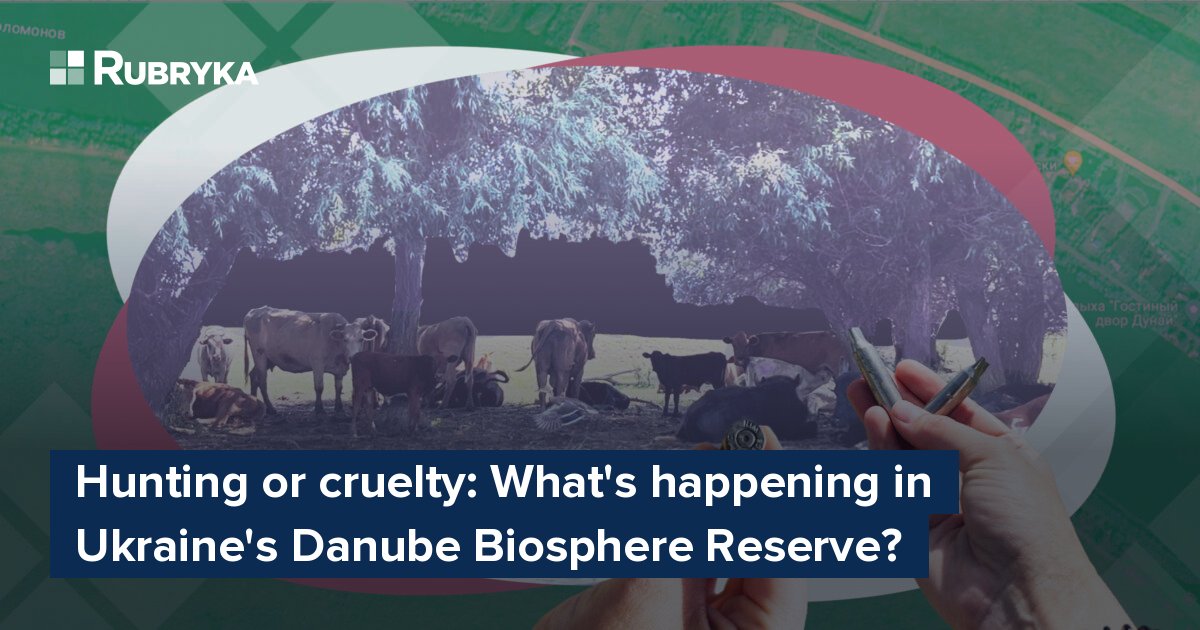
The Danube Biosphere Reserve has been the southernmost protected area Ukraine controls since Russia unleashed its full-scale war in 2022. It's located at the mouth of the Danube River, which flows into the Black Sea near the town of Vylkove, often called the "Ukrainian Venice" due to similar canal streets. The reserve, recognized as a UNESCO Biosphere Reserve, is part of the "Danube Delta," a transboundary protected area that spans Ukraine and Romania.
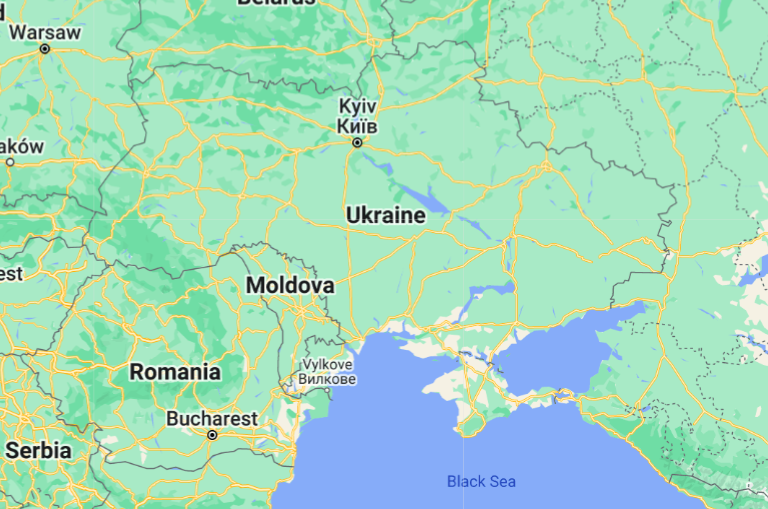
The town of Vylkove on the map of Ukraine. Screenshot of Google Maps
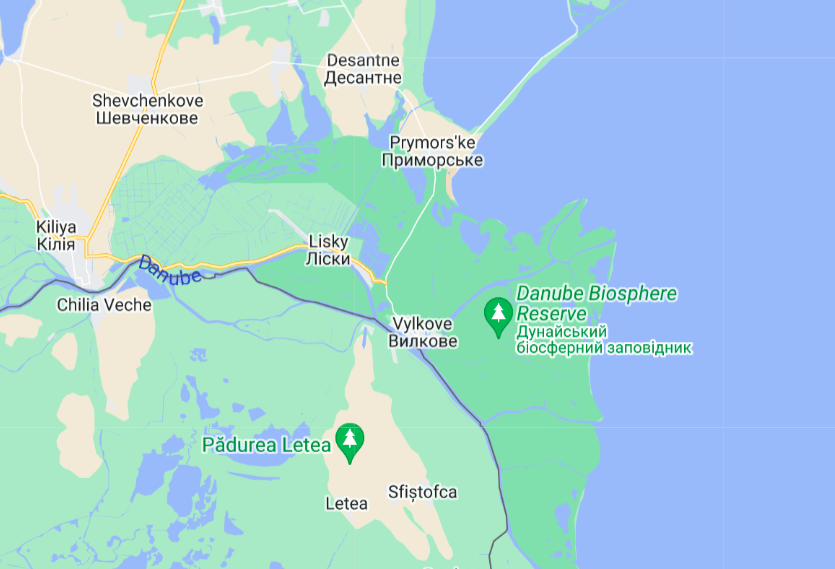
Danube Biosphere Reserve on the map of Ukraine. Screenshot of Google Maps
Since the war, the Danube Biosphere Reserve has been almost closed to tourists and off-limits to journalists. When Rubryka tried to visit the reserve in 2023 or at least get a comment from its director for the series of articles about Ukraine's protected areas during the Russian invasion, the organization flatly refused us twice. The official letters we received cited the need to close the reserve during martial law in Ukraine because the area is considered potentially dangerous for visitors. However, the Rubryka journalist finally visited the reserve in the summer of 2024 as part of the filming crew of Save Me, a documentary about the impact of war on Ukraine's nature.
It turns out that some tourists can still visit the reserve, but only women and children are allowed due to the concern that men can illegally cross the border to Romania. These visits must be coordinated with the border service, and some routes, which were previously accessible by boats or kayaks, are now closed. Local tour companies say they've had to put their boats into storage. Of the hundred boats that once operated, only about ten remain. The tourism industry is suffering but may not be the only one. The reserve's "closure" might benefit certain parties, and we intend to uncover who stands to gain.
What's the problem?
Hunting rifles were fired on Yermakiv Island
The Danube Biosphere Reserve is well-known in Ukraine for Yermakiv Island, a popular tourist spot. Before the war, many visitors used to come here to watch birds, as the area has plenty of observation towers. The island became even more attractive to tourists after rewilding, which has been ongoing for several years and improved the local biodiversity. The island is now home to new species, such as Koniks, a pony-like hybrid breed, a cross between a wild tarpan and a regular horse and buffalos — or, as locals call them, "water buffalos" due to their love of wallowing in mud puddles. The island fauna also includes regular domesticated cows.
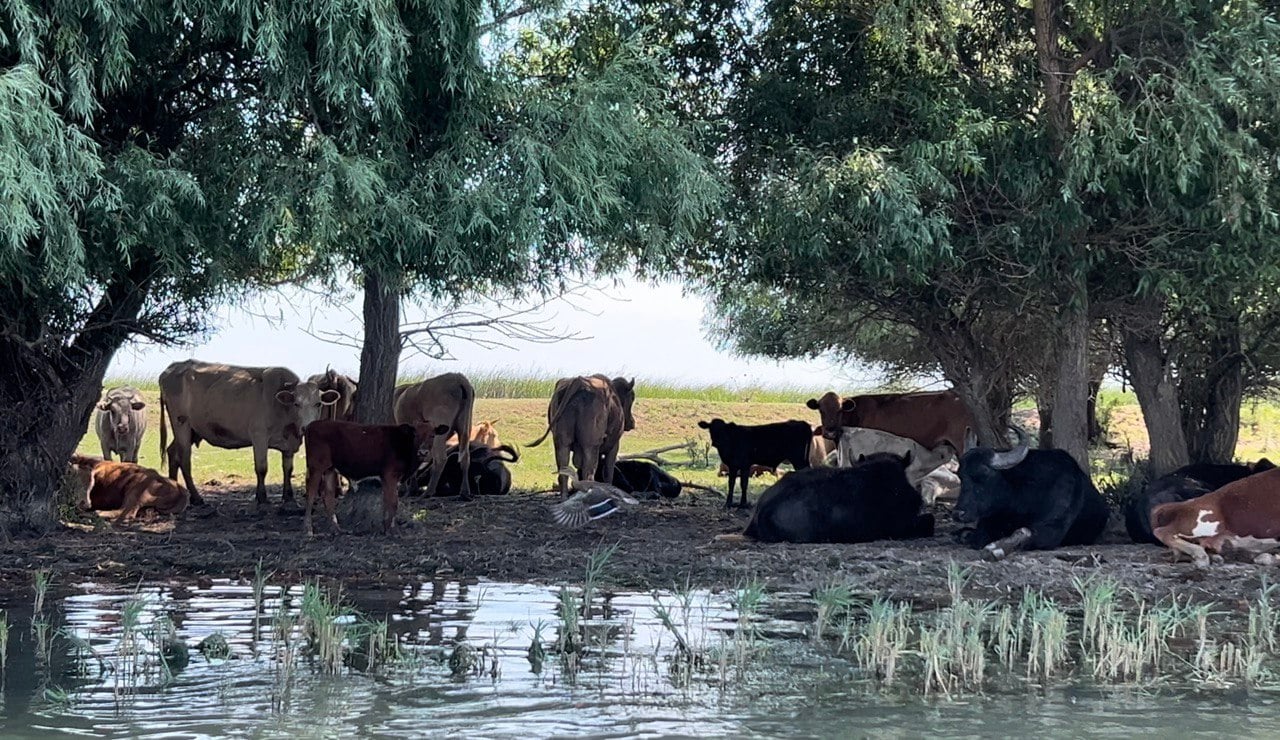
Cows and "water buffalos" on Yermakiv Island in the Danube Biosphere Reserve
All the animals on the island peacefully sharing the shade of the trees can usually be seen from a boat. Their life, however, may not be peaceful all the time.
During our visit, we found shell casings from 308 Winchester bullets right on a dirt road. This is the most common caliber for hunting rifles worldwide, used by hunters and sports shooters.
It is strange to discover them in a biosphere reserve. For those familiar with conservation, this would immediately cause serious concern.
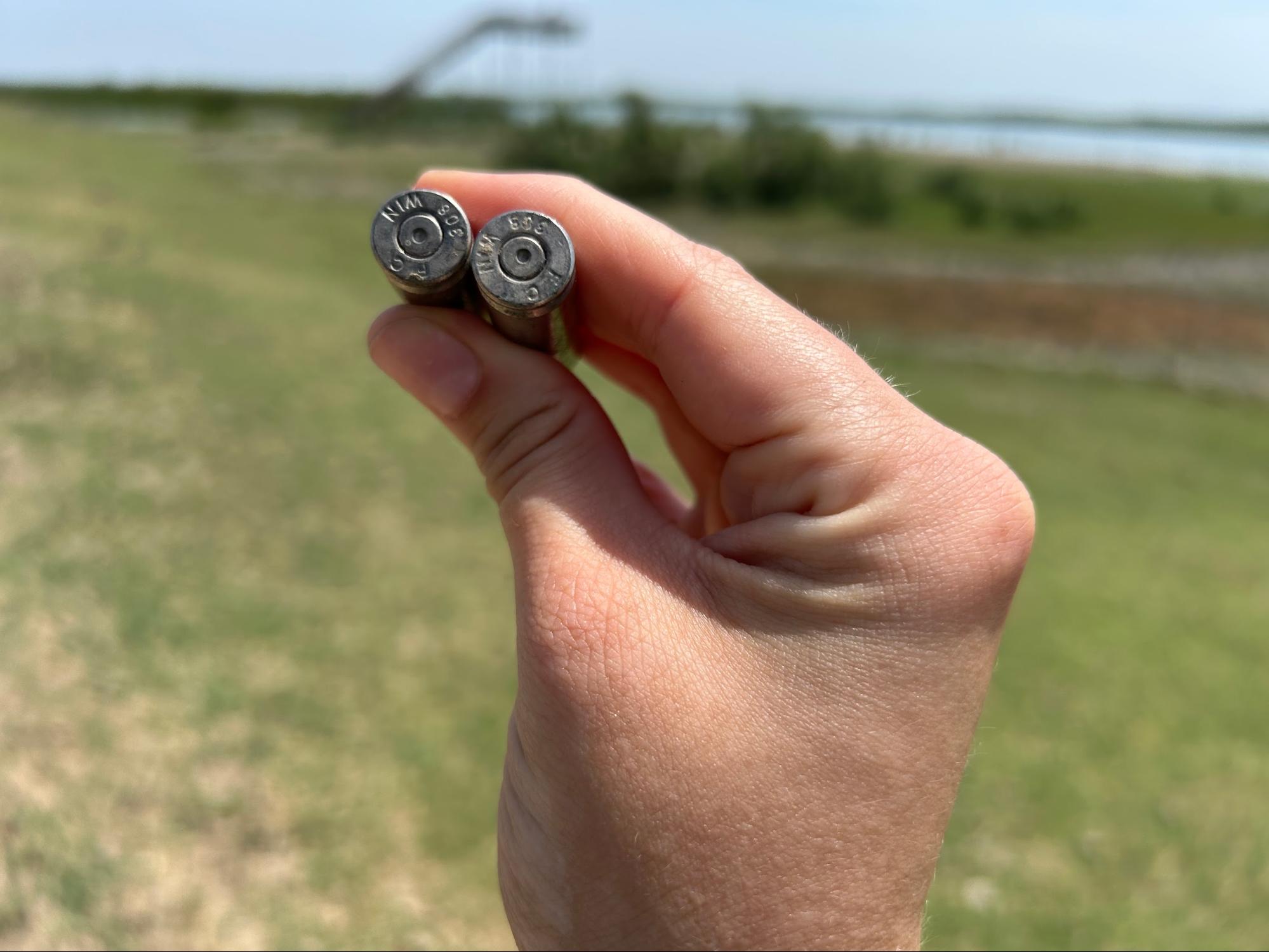
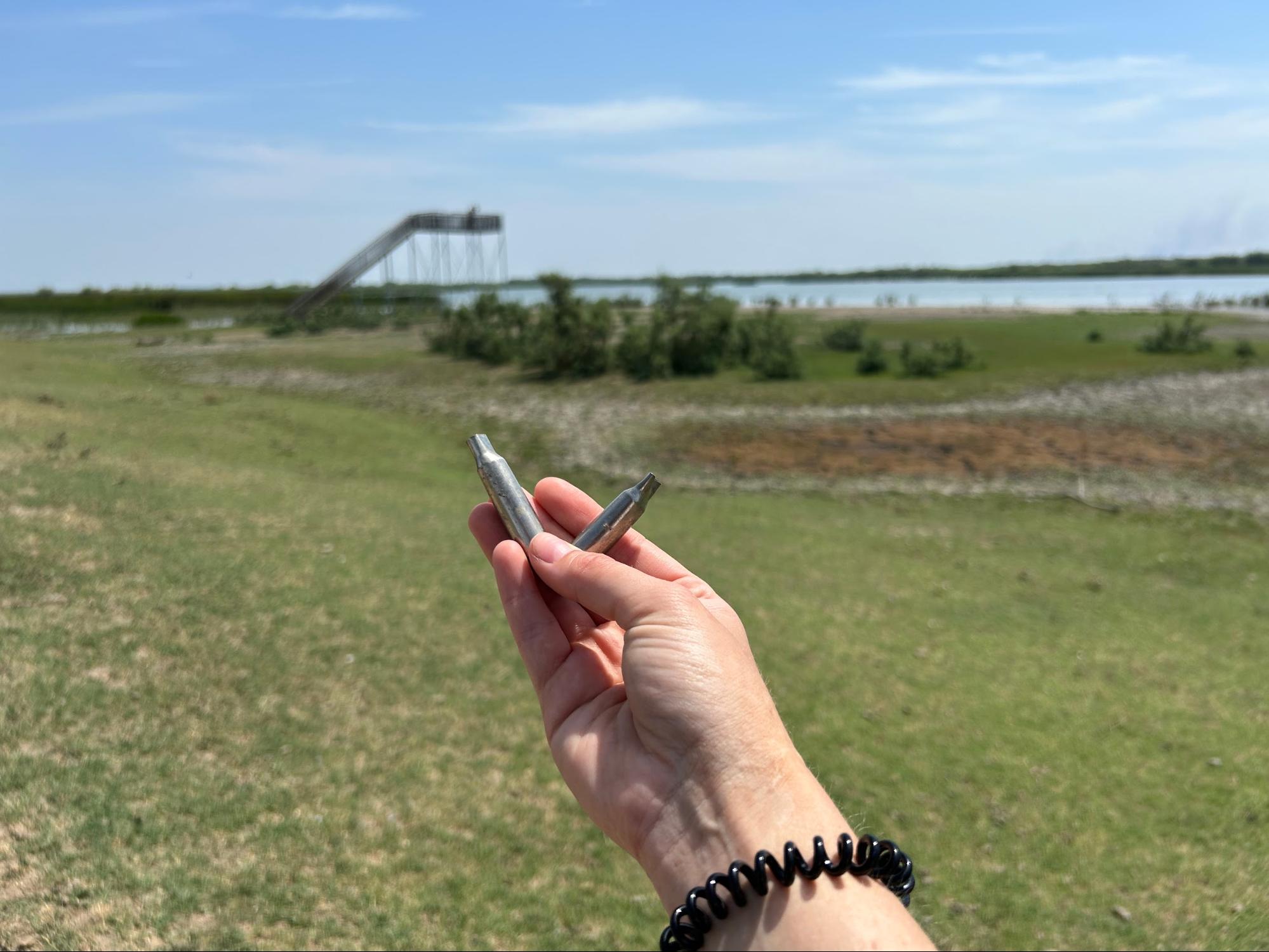
Spent shell casings from 308 Winchester hunting ammunition Rubryka found on Yermakiv Island, part of the Danube Biosphere Reserve
Hunting is forbidden in biosphere reserves
Yermakiv Island is divided into two zones — a buffer zone and an anthropogenic landscape zone. Both are types of functional zones that can be leased out. Hunting is strictly prohibited by law in both zones as per Article 18 of the Law of Ukraine "On the Natural Reserve Fund of Ukraine" and section 4.3.3 of the Order of the Ministry of Environment and Natural Resources No. 387 from 22.10.2015. Violations of these laws are criminal offenses under Article 248 of the Criminal Code of Ukraine. They are punishable by fines or imprisonment for up to five years, depending on the severity of the offense.
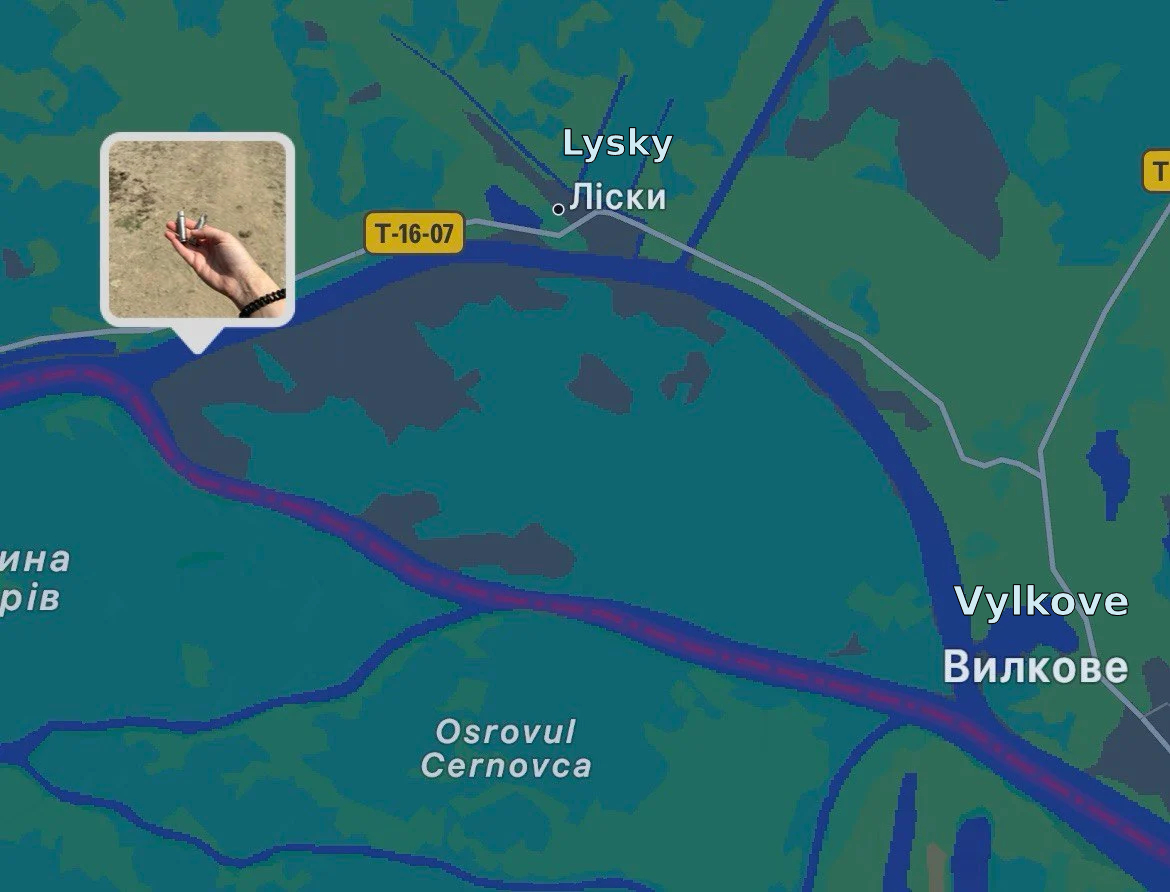
The location where the hunting cartridge cases were found on Yermakiv Island
Clearly, hunting cartridges should never have ended up in the biosphere reserve under these conditions. When asked how they got there, one of the reserve's staff members casually responded:
"We clean them out by the bagful. The renters do it, and the reserve turns a blind eye."
After researching the public information about the renters, Rubryka found out that, since 2004, the entire Yermakiv Island has been leased by a company called LLC "Yermak." According to Ukraine's business registry, the company is involved in breeding cattle and buffalos. The LLC's ultimate beneficiary is Svitlana Dubova, the wife of former Batkivshchyna Party MP Oleksandr Dubovyi, who is suspected by the National Anti-Corruption Bureau of Ukraine (NABU) of embezzling millions from the Odesa City Council. The second beneficiary is Sofia Pohorelska, who, according to the publication Nashi Groshi, is likely the married daughter of the Dubovys. One of the founders of LLC "Yermak" is the Joint-Stock Company "International Investment Company," which belongs to Dubova and Pohorelska and is linked to a scandal in the energy sector.
Are the animals reintroduced for rewilding at risk?
Rewilding Ukraine, a nonprofit organization that restores natural landscapes, reintroduces wild animals and promotes sustainable community development in Ukraine, brought buffalos to Yermakiv Island for the first time in 2019. In 2020, they introduced Koniks and added deer and fallow deer in 2021.
Given the troubling discovery of hunting cartridges on Yermakiv Island, Rubryka contacted the NGO and spoke with Oleksandr Haidash, a zoologist with Rewilding Ukraine. He highlighted that the island has regular cows that graze freely on its territory.
"We constantly monitor the number of our animals, and we've never had issues with illegal hunting of our buffalos or Koniks that were released there as part of ecosystem restoration," Haidash commented. "We keep track of young and adult animals and visit the island regularly, and everything is fine. As for the shell casings? That needs to be investigated."
So, who's hunting on Yermakiv Island?
The reserve employee we spoke with told us the cows are shot "to feed the lions." This statement might make readers wonder how lions ended up on a Ukrainian island in a biosphere reserve. The reserve employee went on to explain: "These are Turchynov's lions," — referring to Ukrainian politician Oleksandr Turchynov, a former acting President of Ukraine after the Maidan civil protests removed pro-Russian president Viktor Yanukovych from power in 2014.
According to the reserve worker, two enclosures on the island house two lions, once gifted to the politician as an exotic present. Later, as we sailed past this area, we saw the two enclosures. As we tried to take photos of the location, the reserve staff member wanted to censor them. The structures are still visible on Google Maps.
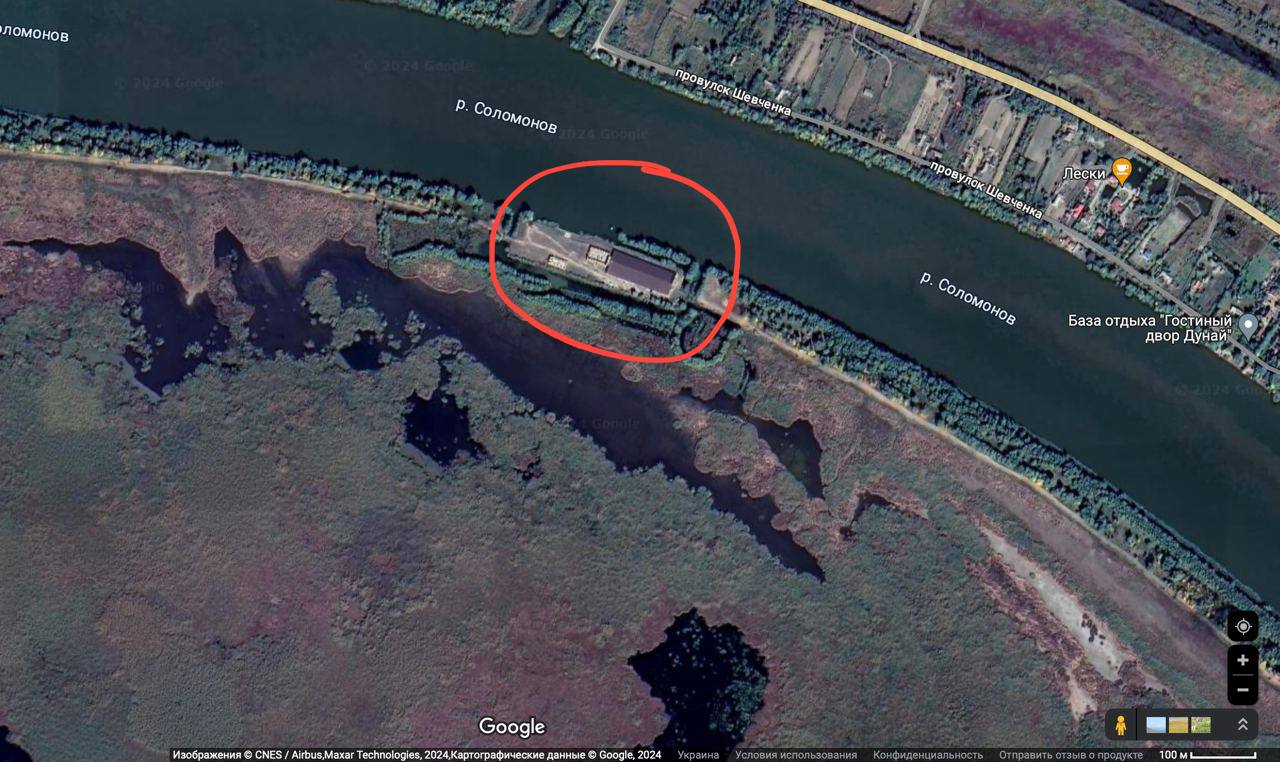
The two enclosures house "Turchynov's lions" on Yermakiv Island
While our source in the reserve claims that the livestock on the reserve's territory is allegedly shot to feed the lions, they didn't specify who is responsible. Still, they hinted that the island's renters might be involved.
This isn't the first time hunting has occurred on Yermakiv Island. In 2021, the local publication Sila Hromad reported that someone had shot the island's six horses and pregnant cows, butchering them for meat. The crime was supposedly discovered by the island's renters — employees of LLC "Yermak." Back then, the reserve's director (who is still in office), Oleksandr Voloshkevych, promised in a statement to the publication to "find and punish" those responsible.
However, the situation from three years ago takes on a new light when considering the reserve employee's claim that the renters are hunting their livestock and that the reserve is looking the other way.
What's the solution?
Is there even a solution to discuss?
Two important factors should be considered. First, suppose we accept the explanation from the biosphere reserve employee that only domestic cows are being shot on Yermakiv Island. In that case, legally, these incidents cannot be classified as hunting. Hunting or game shooting typically refers to pursuing wild animals or birds.
Yermakov Island is home not only to domestic livestock and the animals introduced as part of the rewilding but also to other species, most of which are wild birds. Some of these species are red-listed, such as the white-tailed eagle, glossy ibis, great white pelican and Dalmatian pelican, red-breasted goose, and hen harrier, among many others. Overall, about 200 different bird species inhabit the Danube Biosphere Reserve.
The point is that we don't know what the hunters targeted. The reserve's closure during wartime, combined with the restrictions on access — at least for journalists like us — without accompaniment from border guards and reserve staff, might create opportunities for local poachers, land users, and others to exploit the natural resources unchecked.
Second, even if we're talking about the shooting of domestic animals, not the hunting of wild species, the killing is still an inhumane method of euthanasia that is against the law. According to Article 17 of the Law of Ukraine "On the Protection of Animals from Cruel Treatment," the killing of animals for agricultural purposes is only permissible under the following conditions:
- The killing must be done using methods that prevent the animal from experiencing pain or distress.
- The area where the killing is conducted must be separate from where other animals are kept.
The law defines cruel killing (Article 1) as the killing of animals without using pain-relieving methods that prevent them from feeling pain and fear. So, if we're talking about euthanizing a farm animal like a cow, shooting it with a hunting rifle outside of a designated facility constitutes cruel treatment of animals. This is also a crime under Article 299 of the Criminal Code of Ukraine. Third, gunshots can also disturb other animals in the reserve.
In our view, the only solution is to stop the violation immediately and open a criminal case for breaching animal cruelty laws and, possibly, illegal hunting laws. Rubryka urges law enforcement agencies to take note of this situation and respond accordingly.


